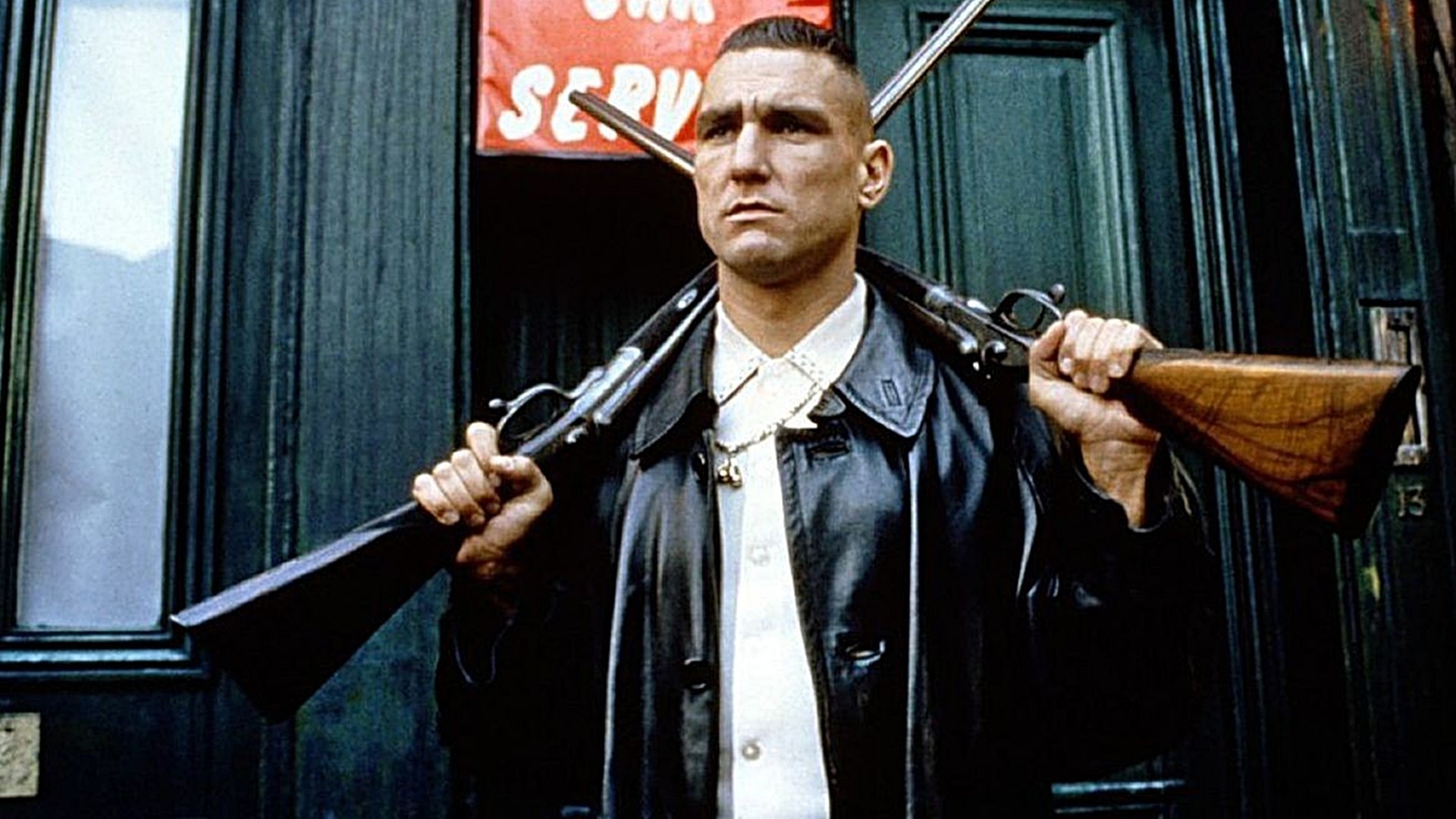
Before a shot of a film is seen, before a frame of it is shot, before a word of its script is read, people look to its title to gauge what kind of affair they’re in for; be it a tone setter, a plot starter, a character’s name, or a thematic set up, the name counts for a lot- not everything, but a lot.
The approach to film titles has basically been the same since its monopolisation; keep them short, punchy, and easy to understand. Many people tell you a title should be less an artistic statement and more a marketing hook that reflects the film without scaring any potential audience members away.
No more than three words is the norm now a days, with particular favouritism going towards single word titles over the last few years, Frozen, Spotlight, Whiplash; hell just look at Jake Gyllenhaal’s latest output, Prisoners, Enemy, Nightcrawler, Southpaw, Everest, Demolition. Short, simple and marketable- them’s the rules.
But for every rule there are those who break it, titles that are not only artistic statements, but are straight-up lyrical. Not just breaking the short and snappy rule, but taking a sledge hammer to it, spitting on its grave, and demanding you refer to it by its full name. So let’s look at a few of the greatest films with overly long titles.
Ground rules; no shorter than six words in a title, and no franchise films – as that’s just unfair; so sorry Harry Potter and Lord of the Rings fans, those’ll have to find another list to hangout on.
1. Dr Strangelove or how I learned to stop worrying and love the bomb (1964)
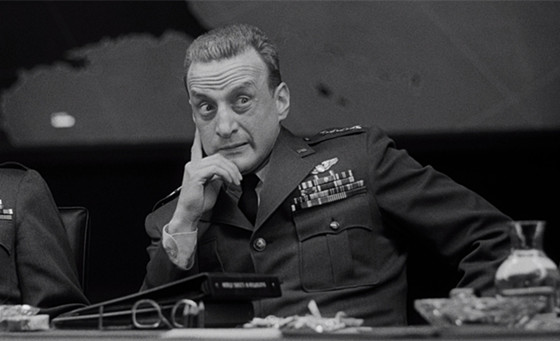
Comedy and Stanley Kubrick, two things you think would go together as well as, well comedy and nuclear destruction. But it makes sense in the same way a satire about nuclear warfare does. Before this Kubrick had shocked us with Loltia and Paths of Glory, and would go on to scare and disgust us with The Shinning and A Clockwork Orange. They say the funniest comedians can do the best dramatic work, so why can’t the reverse be true.
It’s the same idea as the paradoxical thinking behind nuclear bombs, ‘we need the ultimate weapon, to keep the peace’. So in 1964, in the height of the cold war, Kubrick was the perfect person to make people laugh at their own potential demise. Based on a serious novel called Red Alert, the film only became a comedy within the adaptation, as Kubrick became aware of the inherent comedy behind mutually assured destruction.
With a top form Peter Sellers at the heart, liver and funny bone of the film in three barely recognizable performances; Kubrick treats complex political warfare like a playground squabble and as an over the top farce, where the murder of millions is discussed like losing a football game, and the silliest of things are delivered dryly and with deadly seriousness, “…Gentlemen! You can’t fight in here. This is the War Room!” But for every crazed Nazi Doctor, and sexually frustrated General, there is an important and clear anti-War message to be considered after all the laughs.
And it’s that clear, important meaning to take from it that makes it truly great, sets it apart from the dozens of other satires out there, and why decades later it still matters.
It doesn’t just blanket statement ‘war is bad’ it examines, deconstructs, and makes fun of all the problems that go along with it; to make it clear why the idea of global nuclear war is just…silly.
2. Those Magnificent Men in Their Flying Machines, Or How I Flew From London To Paris In 25 Hours 11 Minutes (1965)
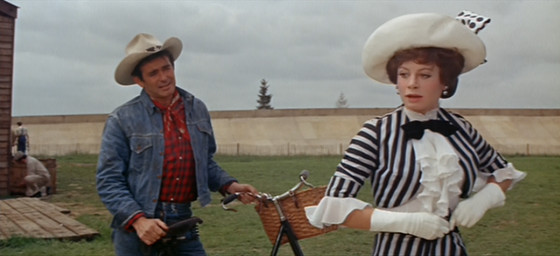
A film in that vague space between quality and being sheer overwhelmingly qualified for this list. In many ways The Great Race in the sky, this isn’t as well done or as classic as that, but it does have a much longer name. This is a fun bit of British & Old Hollywood wacky adventure, chronicling the exploits of an international air race in the 1910’s as stereotypes of all nationalities race across the British channel- from cock swinging Texans, to up tight Germans, snooty Brits, and flirty Frenchmen.
While the humour can be a bit broad it does have its great moments of quick wit, and redefining expectations – my favourite being a poorly dubbed, but perfectly spoken Chinse pilot who everyone still treats as though he speaks in an impenetrable accent, classic slight British racism at its most amusing.
No, the real appeal of the film is its excellent stunt work, using dozens of real period air-machines in dozens of ludicrous and slap-sticky stunts, ranging from straight crashes, to mid-air collisions, and upside down ocean falls, for the era and even by today’s standards it’s spectacular, and sometimes jaw dropping work. It drags more than it should, and its gender politics and villain isn’t as interesting as the aforementioned Great Race, but it’s a good time for what it is.
3. How to Succeed in Business Without Really Trying (1967)
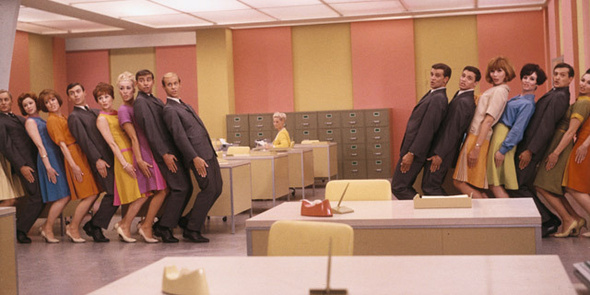
Based on the Broadway smash musical, this is a well stacked slice of classic 60’s wit, and satire following a young man’s rise and rise in a vague company; picture Mad Men as a comedy musical. It’s a little bit kitschy, it’s a little bit silly, but it’s also more than a little hilarious, delving quick fire laughs and visual gags second after second; existing in that perfect space between over the top and deadpan.
The real hero is our lead, Robert Morse (a Mad Men alumnus, go figure), sporting one of the most likable hateable faces ever seen in cinema; managing to maintain a bashful and charming innocence, even as he cheats and backstabs his way to the top of the ladder, using just that very charm to do so. He is very, very funny in a way we just don’t see much anymore.
Surprisingly the musical sequences are fairly far between, with much of the film given over to its fast and funny yammerings, but when they rear their head they are for the most part fresh and fun, hosting catchy melodies and stunning, stunning chorography; even if with few exceptions they don’t progress much.
But this is that rare musical where it’s everything but the music that you should come for, the performances, the characters, the direction, the dancing, the LAUGHS- the music’s just a nice little frame round all of that.
4. Everything You Always Wanted to Know About Sex * But Were Afraid to Ask (1972)
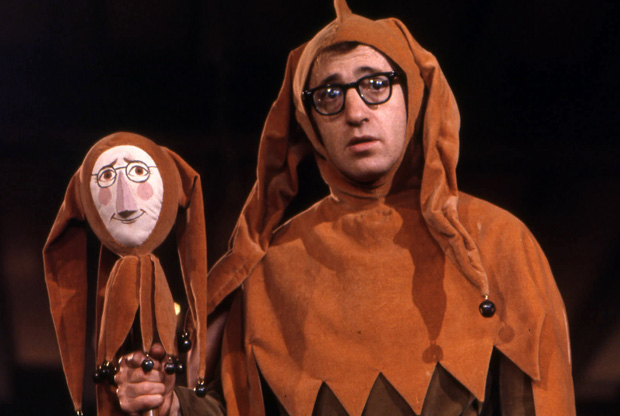
This is an odd one. It’s not for everyone, yet there may be something for everyone in it. An early Woody Allen effort, it consists of seven shorts, sketches of sorts, about different ideas around sex and sexuality, and is as loosely based on the book of the same name as the brazier that shows up in the film.
These skits range from, the hilarious, like Gene Wilder falling in love with a sheep; the clever, like our bodies sexual functions depicted as a NASA style control room; and the just plain awkward, like a Jester drugging a queen to have sex with her….the opening sketch is the weakest of the bunch.
But if you can get past that, and his beautifully shot but overly long pastiche on Italian new wave (some will love it, some will not); if you put in the time, you’ll find some truly bizarre gems and ahead of its time comedy, that keeps topping your expectations of how far it takes its absurdist humour. Personal favourites being, a dark parody of classic games shows called ‘What’s My Perversion’, and a just delightful send-up of old monster movies that features such classic lines as “It was I who first said that the clitoral orgasm should not be only for women!”
If you go in as blind as you can after reading this, there is still plenty of gold to be found and you will still be blown at the extent the film will go to for some cheap laughs. Again it’s not for everyone; the sections only vaguely tie together thematically and the ones that don’t work do NOT work. But for those who like their humour, witty, whimsical, and wacky, there is plenty to discover.
5. The Adventures of Priscilla, Queen of the Desert (1994)
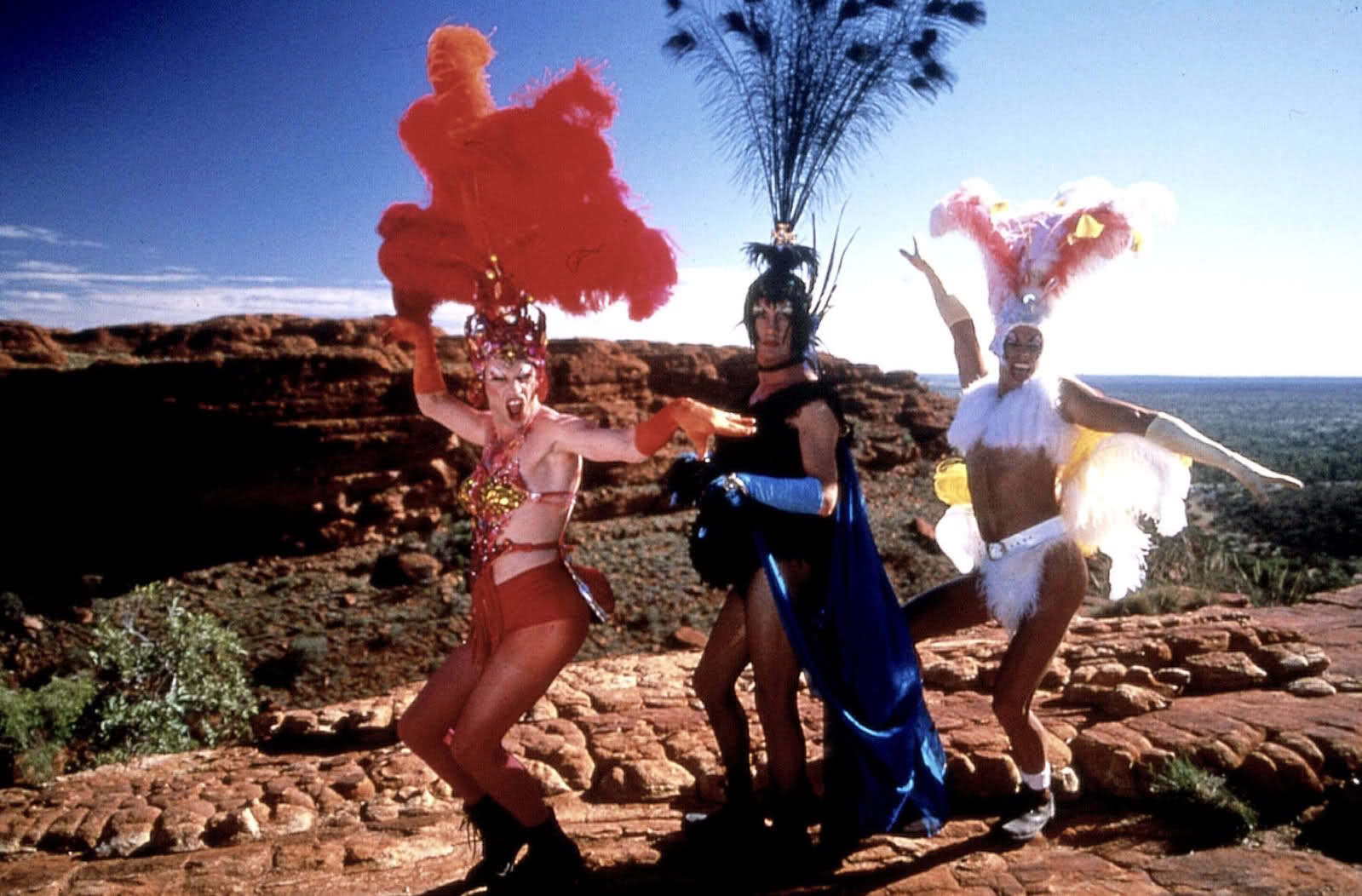
A very progressive film for the 90’s that sees a pair of gay show dancing drag queens and a transgender woman, sing and dance their way across Australia with all the funny, silly, and sweet, misadventures they have along the way. It’s a pure joy of a film.
Hugo Weaving leads the film as a very tender but conflicted man, building up to facing his estranged wife at the end of their journey, and brings the much needed heart and nuance to this by its nature over the top fare. But it’s Terrance Stamp and a yummy Guy Pearce, who steal the show.
The former as a sassy aged woman who’ll take no shit from anyone, giving us to some of the best lines in the film; but Stamp plays her far beyond any stereotype, envisioning her with a melancholy wisdom that leads to her blossoming romance with a gentleman they meet along the way, being one of the highlights of the film.
While Pearce’s latter character IS the kind of over flamboyant queen you’d suspect, Pearce brings such boundless energy to the role, such an eye pulling flare, you can’t help but fall under his gyrating, trouble maker bravado.
But the film goes beyond being just the straight comedy it could have been, having healthy dollops of drama and heart mixed into the fabulous tale, as our three heroes of course deal with prejudice and hate wherever they go, from people and from themselves, but also discover plenty of love and compassion; and it all adds up to a heart-warming tale of self-acceptance. Past the depth of the text, the visuals are also truly splendid.
Taking place predominately in the Australian desert, we are welcome to many sweeping landscapes and golden hour moments that are as breath-taking as our characters’ many frocks and corsets. If the image of Agent Smith in a bright green sequin dress dancing on the edge of a cliff at sunset doesn’t do it for you, then this isn’t the film for you. But if it does, then don’t worry, to quote Neil Patrick Harris, The Adventures of Priscilla, Queen of the Desert- it’s not just for gays anymore!